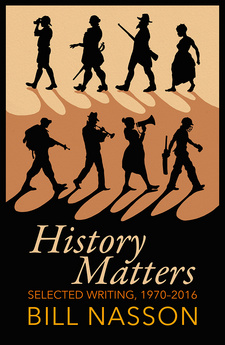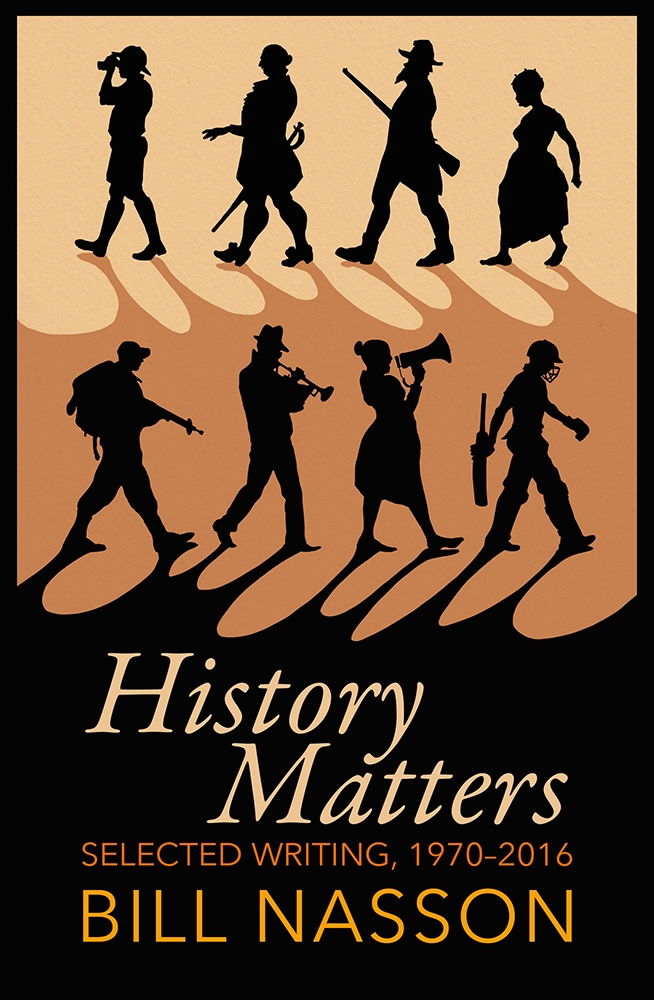History Matters, by Bill Nasson

History Matters, by Bill Nasson. Penguin Random House South Africa, Penguin Books. Cape Town, South Africa 2016. ISBN 9781776090273 / ISBN 978-1-77609-027-3
From the subtle ambiguity of the title to the satirical endings, History Matters by Bill Nasson is a delightful read.
Ben Kies: A tiger of non-racism and non-collaboration, 1917-1979
Intellectual, high-school teacher, community lawyer and radical political activist, Benjamin Magson Kies was born on 12 December 1917 in the working-class district of Woodstock in Cape Town. He was one of three sons born to Benjamin and Ethel Kies, both skilled factory workers in the local garment industry. The offspring of parents who had acquired experience of labour politics through small craft unionism, Ben (or Benny) was raised in a politically aware urban household, one stirred by spurts of local industrial unrest in the decade after the end of the First World War. Another childhood experience that had a formative impact on his consciousness was that of institutional religion. Coming from a practising Christian family, Sunday-school attendance at the lower Woodstock Anglican Church of St Mary the Virgin was customary for the Kies children. But, in early adolescence, Ben and a brother were denied membership of the church choir because they were insufficiently light-skinned to 'pass for white'. In apartheid society, Woodstock was known as a nod-and-a-wink kind of Cape Town suburb, an easy-going place tolerant of coloured inhabitants who were sufficiently light-skinned to 'pass' and thus step up a station in life. The Kies brothers fell short. The sting of this hurtful episode of colour discrimination became another root of Ben's early absorption in political issues and involvement in left-wing political activism. Following elementary schooling in Woodstock, Kies completed his secondary-school education at Trafalgar High in neighbouring District Six. Like Livingstone, Trafalgar was one of the city's notable coloured high schools, with a reputation for academic rigour and political alertness. There, he shone and went on to secure funding to continue his studies at the University of Cape Town, where he acquired bachelor's and master's degrees. His first professional job was in English teaching, back at his former high school, where he worked for many years until the mid-1950s. In 1949, Kies married Helen Abrahams, another schoolteacher and committed activist who would go on to become an influential political educationist in her own right. Her groom delayed marriage until after the end of the Second World War's food shortages, so that wedding guests could be treated to proper cake, made with white flour. Already a pugnacious political debater in his early student years, in 1937 the bookish Kies joined and swiftly became vice-chairman of the anti-colonial New Era Fellowship, an intensely cerebral socialist debating society. Meeting regularly for over two decades, in heated Fellowship discussions Kies and left-wing associates such as Richard Dudley and Goolam Gool dissected the knotty relationships between imperialism and capitalism, and the foundations of white domination, racism and inequality in South Africa. A beavering presence in study groups which included his future spouse, Helen Kies, Ben's ideas were pivotal to the formation of the NEF's political creed. That rested on the notion of a unity of all oppressed non-European people, the embracing of an ethos of non-racialism, and principled opposition to all forms of racial organisation, including that of the coloured elite in the African People's Organisation and the nationalism of the African National Congress. In the early 1940s, Benny Kies was a towering leadership figure in an NEF boycott campaign against government plans to establish a Coloured Affairs Department (CAD). In strident anti-CAD pamphlets and in addresses to public meetings in 1943, he argued that this was a means of further segregating coloured people, just as had been done to Africans earlier, through the formation in the 1930s of a Native Representative Council. [...]
This is an excerpt from History Matters, by Bill Nasson.
Title: History Matters
Author: Bill Nasson
Publisher: Penguin Random House South Africa
Imprint: Penguin Books
Cape Town, South Africa 2016
ISBN 9781776090273 / ISBN 978-1-77609-027-3
Hardcover, dustjacket, 16 x 24 cm, 286 pages
Nasson, Bill im Namibiana-Buchangebot
History Matters
History Matters is a brilliant blend of essays, reviews and reflections on South Africa's past.

